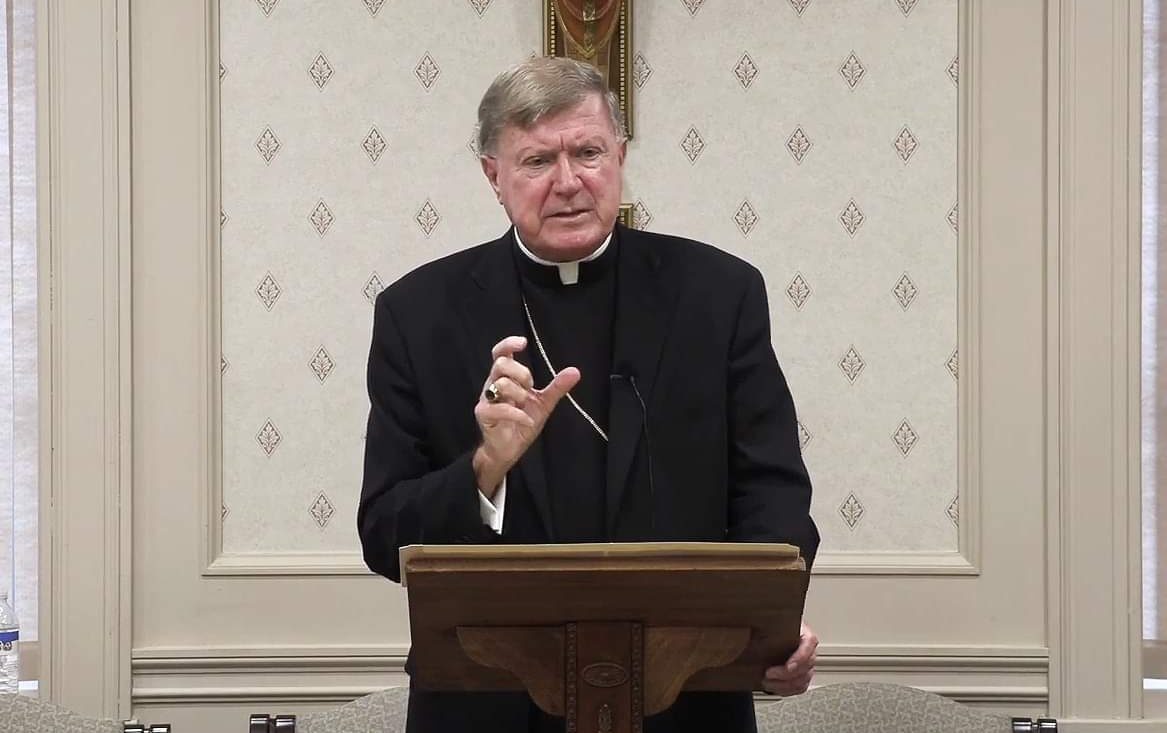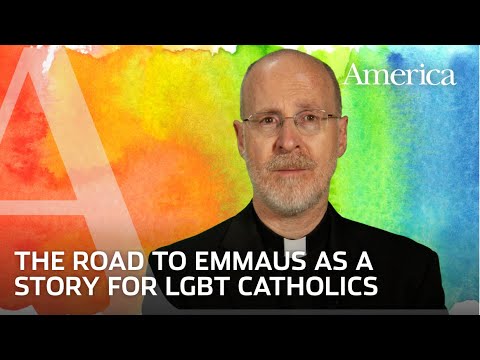Catholic school students may not express an LGBTQ identity and transgender students may face expulsion in the Diocese of Worcester, Mass., according to new guidelines initially reported Tuesday. The policy is a near exact copy of guidelines released by the Diocese of Little Rock, Ark., in July 2016.
Claiming that LGBTQ pupils’ sexual identity or gender expression could “confuse” and cause “scandal” to the student body, the guidelines state that students must present “in a manner consistent with their biological sex.” Failure to abide by this policy will result in a meeting with the student’s parents and possible removal from the school.
The new rules—the latest in a series of school-focused gender identity guidelines published by U.S. Catholic dioceses since last year—discourage the use of LGBTQ or similar terms to address students. “When discussing homosexuality or homosexual inclinations in school settings, the use of the term ‘same-sex attraction’ is preferred,” reads the document. Similarly, the guidelines argue that the existence of transgender students is caused by “confused notions of secular gender ideology.”
The new rules—the latest in a series of school-focused gender identity guidelines published by U.S. Catholic dioceses since last year—discourage the use of “LGBTQ” or similar terms to address queer students.
In addition to mandating the use of pronouns and names on school records that correspond with students’ sex at birth, the guidelines seek to curtail how speech is exercised by LGBTQ pupils. “Students may not advocate, celebrate, or express same-sex attraction in such a way as to cause confusion or distraction in the context of Catholic school classes, activities or events,” the policy reads.
Two single-sex diocesan schools, both run by religious orders, rejected the new guidelines and informed the bishop last week that they would continue to follow prior rules. Brother Daniel Skala, general superior of the Xaverian Brothers, and Patricia Chappell, a Sister of Notre Dame de Namur, wrote a joint letter to the bishop and stated that the Worcester schools were acting “in a manner that respects the dignity of all persons.”
A current Worcester mayoral candidate described the policy as relying on “outdated, hate-filled rhetoric” and called it a step backwards for LGBTQ Catholics. David Palmieri, a longtime Catholic educator and contributing writer at Outreach, criticized the guidelines as distorting the words and ministry of Pope Francis.
“It is misleading and disingenuous to use [the pope’s] words in an effort that is so evidently inconsistent with the tenderness of his ‘field hospital’ ministry,” Palmieri wrote in an email. “What does it say about our church when people are actively hurt by our leaders, who quote canon law but not Jesus Christ?”
Kevin C. Molloy, the associate director of campus ministry at Fairfield University and a graduate of Worcester’s College of the Holy Cross, told Outreach he hopes Bishop Robert J. McManus will rescind the policy. “Simply declaring you are taking a pastoral approach while belittling, dismissing and negating the lived reality and dignity of students is an abdication of the call to understanding and pastoral care,” wrote Molloy in an email. “The policy betrays its own intention by carving out its assumed, though misguided, right to discriminate against queer and trans students.”
Mary-Kate Tracy, a campus minister and former principal at the all-girls Ursuline Academy in Dedham, Mass., wrote that the policy did not appear to take any input from students.
“As someone who works with students daily, it was apparent to me in the reading of the policy that those who authored it are not in close proximity to young people,” she wrote to Outreach. “In my experience, students who are working to discern their gender identity, in particular, want to blend in quietly; they have no desire to cause confusion or disruption to the community when they are seeking clarity in their own lives.”
(Asked to respond to criticisms of the policy, the diocese directed Outreach to a press release providing a summary of the guidelines. “Individual situations were arising which underscored a need for a single policy,” reads the press release.)
Bishop McManus, who has led the diocese since 2004, informed diocesan school officials of the forthcoming policy updates in June. The bishop ignited controversy last summer when he ruled that the Nativity School, an all-boys secondary school in the diocese, could no longer call itself Catholic after flying Pride and Black Lives Matter flags on campus. He also ordered the removal of Bishop Emeritus Daniel P. Reilly from the school’s board. In response, the school declined to remove the flags and filed an appeal with the Vatican.
“It is misleading and disingenuous to use [the pope’s] words in an effort that is so evidently inconsistent with the tenderness of his field hospital ministry.”
Since last June, at least 40 U.S. Catholic dioceses have published guidelines on gender identity in diocesan schools. As reported by Palmieri, several of these policies position transgender identities as contrary to the Gospel and either prohibit or limit the expression of gay students. The Diocese of Sioux Falls, S.D., for example, described its school policy last July as “intentionally exclusionary,” while diocesan guidelines from Arkansas and Texas also restrict advocacy for LGBTQ students.
“These policies, as I see them, mostly lack a foundation in lived experience and pastoral care,” wrote Palmieri in March.
But late last month, Archbishop William E. Lori of Baltimore, who serves as the U.S.C.C.B. vice president, used “LGBT” in his policy directive on diocesan schools and promoted a more measured approach to complex issues of identity and sexuality. “I hope the document helps by offering a model for those on the ground, in ministries throughout the archdiocese, giving them the tools they need to accompany Catholics who identify as LGBT and their families in the fullness of truth and the fullness of charity,” wrote the archbishop in an email to Outreach.
Throughout his pontificate, Pope Francis has repeatedly stressed pastoral care for LGBTQ persons, calling for the worldwide decriminalization of homosexuality in January and writing that Catholics must encounter the gay community with “closeness, mercy and tenderness.”
Since last June, at least 40 U.S. Catholic dioceses have published guidelines on gender identity in diocesan schools.
The pope made headlines in 2018 after Juan Carlos Cruz, a gay man and member of the Pontifical Commission for the Protection of Minors, said the pope had told him, “That you are gay does not matter. God made you like this and loves you like this and I don’t care.” More recently, the pope sent a letter greeting attendees of this year’s Outreach conference, focused on pastoral ministry for LGBTQ Catholics.
But the pope has also sparked criticism for his public remarks on transgender people, stating that non-binary identities and “gender ideology”—a term widely employed in U.S. diocesan guidelines—imperil distinctions between men and women. “Gender ideology, today, is one of the most dangerous ideological colonizations,” said Pope Francis in an interview this March. But as reported last year, Pope Francis has met at least four times with a group of transgender people at the Vatican.
In response to a supportive letter penned by Pope Francis to Outreach editor James Martin, S.J., in 2021, Jason Horowitz, the Rome bureau chief at the New York Times, criticized the Vatican for its “mixed messages” on LGBTQ rights. “A growing dissonance has developed between [the pope’s] inclusive language and the church’s actions,” he wrote.
Updated August 23, 10:21 a.m.




